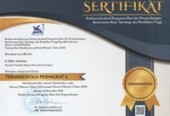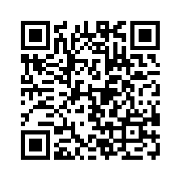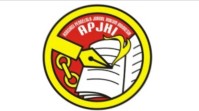In Search of Ummah Welfare Model: The Revitalisation of Sharia Economic Law in Indonesia
DOI:
https://doi.org/10.28946/slrev.Vol7.Iss2.1080.pp244-261Keywords:
Fiqh, Maslahah, Revitalisation, Sharia Economic Law, Ummah Welfare Model.Abstract
Sharia economic law in Indonesia has been revitalised through legal unification and codification to improve national economic development. In this context, the Sharia economy has become a guideline in every transaction. Therefore, people must understand the Islamic economic concept to create maslahah (goodness) in every aspect of life. Sharia economic law is not a new system, as it has been implemented since the era of the Prophet. However, there is a need for adjustment in the implementation of the Sharia economic law from time to time to enable it responding the current development. This study employs qualitative inquiry, using library research to analyse Sharia economic law's history and legal development. Legal documents used include state laws and regulations, the regulations of the Bank of Indonesia, the fatwa of DSN-MUI, and others. This paper argues that the revitalisation of the Sharia economic law in Indonesia is in line with the efforts made by the predominantly Muslim population to conserve and develop the system. This includes non-legalised and legalised implementation of the Sharia economic system, such as Sharia banking. Furthermore, the system does not contradict the value of Pancasila and the 1945 Constitution’s pillars of the Unitary State of the Republic of Indonesia. Sharia economic law, prioritising moral and religious principles, has proven to create maslahah and become a solution to the economic crisis. This was shown by the survival of Sharia banks during the 1998 economic crisis, maintaining the Sharia-standardised contract to create justice in society.Downloads
References
Akhmadi, Agus. “Moderasi Beragama Dalam Keragaman Indonesia Religious Moderation in Indonesia ’ S Diversity.†Jurnal Diklat Keagamaan 13, no. 2 (2019): 45–55.
Al-Syathibi, Abu Ishak. Al-Muwafaqat Fi Ushul Al-Syari’at. Bairut: Dar al-Ma’rifah, 1975.
Amalia, Euis. “Mekanisme Pasar Dan Kebijakan Dalam Perspektif Ekonomi Islam.†Al-Iqtishad V, no. 1 (2013): 1–22.
Amran, Suadi. “Peluang Dan Tantangan Lembaga Keuangan Syariah Dalam Menghadapi Era Pasar Bebas / Opportunities And Challenges Of Sharia Financial Institutions In Dealing With Free Market.†Jurnal Hukum Dan Peradilan 7, no. 1 (2018): 1. https://doi.org/10.25216/jhp.7.1.2018.1-22.
Anusantari, Inama. “Konsep Kemaslahatan MaqÄṣīḠSyarÄ«ah Ibnu ‘Ashur Terhadap Permasalahan Di Era Milenial: Polemik Kebijakan Lockdown Dan PSBB Pemerintah Indonesia Dalam Menangani Pandemi Covid-19.†Al-Maslahah : Jurnal Ilmu Syariah 17, no. 2 (2021): 189–213. https://doi.org/10.24260/al-maslahah.v17i2.1936.
Apridar. Teori Ekonomi-Sejarah Dan Perkembangannya. Yogyakarta: Graha Ilmu, 2010.
Arif, Firman Muh. “Muzara’Ah Dan Pengembangan Ekonomi Umat Di Pedesaan.†Al-Amwal : Journal of Islamic Economic Law 3, no. 2 (2019): 108–36. https://doi.org/10.24256/alw.v3i2.475.
Atsani, Ulya. “Purification of Sharia Banking Law in the National Banking System.†JURIS (Jurnal Ilmiah Syariah) 21, no. 1 (2022): 101. https://doi.org/10.31958/juris.v21i1.5725.
Darmawan, Budi. “Kumpulan Lengkap Peraturan Ekonomi Islam (Dari A Sampai Z).†Ekonomi Islam.Com, 2015.
Dewan Syariah Nasional, and Bank Indonesia. Himpunan Fatwa DSN. Jakarta: DSN dan BI, 2003.
Djakfar, Muhammad. “Revitalisasi Dan Aktualisasi Nilai-Nilai Religiusitas Untuk Mewujudkan Ekonomi Wasathiyah Yang Berkeadaban.†Resented at The 6th International Conference of Islamic Economics & Business, 22 September 2018, Universitas Islam Negeri Maulana Malik Ibrahim Malang, 2018, 1–17.
Djamil, Fathurrahman. Hukum Ekonomi Islam -Sejarah, Teori Dan Konsep. Jakarta: Sinar Grafika, 2013.
Emha, Zidney Ilma Fazaada, Ana Silviana, and Musahadi Musahadi. “Waqf Land Certification Postponement for Place of Worship Due to the Obscurity of the Toll Road Expansion Project (Re-Overview of Gustav Radbruch’s Three Basic Legal Values Theory).†Al-Ahkam 32, no. 1 (2022): 17–40. https://doi.org/10.21580/ahkam.2022.32.1.10745.
Fajar, Mukti, and Yulianto Achmad. Dualisme Penelitian Hukum Normatif Dan Empiris. Yogyakarta: Pustaka Pelajar, 2010.
Fauzan, Ahmad, Edy Kurniawansyah, and M. Salam. “Pengembangan Buku Revitalisasi Dan Reaktualisasi Pancasila Dalam Kehidupan Berbangsa Dan Bernegara Menghadapi Tantangan Globalisasi.†Jurnal Civic Education: Media Kajian Pancasila Dan Kewarganegaraan 4, no. 2 (2021): 43. https://doi.org/10.36412/ce.v4i2.2373.
H. Usman, Mukran, Aswar Aswar, and Andi Wahyu Irawan. “Syariat Islam Dan Kemaslahatan Manusia Di Era New Normal Pada Kegiataan Keagamaan Dan Pendidikan.†Fenomena 12, no. 1 (2020): 89–106. https://doi.org/10.21093/fj.v12i1.2456.
Hamid, Asrul, and Dedisyah Putra. “The Existence of New Direction in Islamic Law Reform Based on The Construction of Ibnu Qayyim Al-Jauziyah’s Thought.†JURIS (Jurnal Ilmiah Syariah) 20, no. 2 (2021): 247. https://doi.org/10.31958/juris.v20i2.3290.
Hamzah, Moh., and Wasilatur Rohmaniyah. “Pembebasan Denda (Al-GharÄmah) Pada Nasabah Wanprestasi Di Lembaga Keuangan Syariah: Analisis MaqÄá¹£id Asy-Syarī’ah Perspektif Asy-SyÄá¹ibÄ«.†J-HES : Jurnal Hukum Ekonomi Syariah 06, no. 02 (2022): 175–94. https://doi.org/https://doi.org/10.26618/j-hes.v6i02.7440.
Harisah. “Revitalisasi Hukum Ekonomi Syariah Di Pesantren Madura Sebagai Resolusi Konflik Masyarakat.†SALAM; Jurnal Sosial & Budaya Syar-I 7, no. 1 (2020): 35–48. https://doi.org/http://dx.doi.org/10.15408/sjsbs.v7i1.14543.
Hariyanto, Erie. “Public Trust in the Religious Court to Handle Dispute of Sharia Economy.†AHKAM: Jurnal Ilmu Syariah 22, no. 1 (2022).
Hariyanto, Erie, and Moh. Hamzah. “Bibliometric Analysis of the Development of Islamic Economic Dispute Resolution Research in Indonesia.†JURIS: Jurnal Ilmiah Syariah 21, no. 2 (2022): 221–33.
Hasan, K N S, and T Pasyah. “Challenges of Indonesian Halal Industry in the Digital Economic Era.†Sriwijaya Law Review 6, no. 2 (2022): 319–35.
Hidayati, Tri, Masyitah Umar, and Fathurrahman Azhari. "Political Reorientation of Indonesian Sharia Economic Law : Legal Politics of Trade Law on Sharia Multilevel Marketing Trade Basis of the Indonesian State. Article 29, Paragraph 1 of the 1945 Constitution of the Republic of Indonesia States : " The Repu." Mazahib Jurnal Pemikiran Hukum Islam 21, no. 2 (2022): 245–90.
Irawan, Mul. “Politik Hukum Ekonomi Syariah Dalam Perkembangan Lembaga Keuangan Syariah Di Indonesia.†Jurnal Media Hukum 25, no. 1 (2018): 10–21. https://doi.org/10.18196/jmh.2018.0097.10-21.
Irwansyah. “Research-Based Environmental Law: The Debate Between Ecology Versus Development.†Sriwijaya Law Review 1, no. 1 (2017): 35–52.
Iswandi, Andi. “Peran Etika Qur’Ani Terhadap Sistem Ekonomi Islam.†Al-Iqtishad: Journal of Islamic Economics 6, no. 1 (2014): 143–54. https://doi.org/10.15408/ijies.v6i1.1528.
Jureid. “Peranan Ekonomi Syariah Dalam Upaya Revitalisasi Entrepreunership Umat Muslim.†Jurnal Kajian Ekonomi Dan Kebijakan Publik 6, no. 1 (2021): 353–66.
Jusmaliani, and Muhammad Soekarmi. Kebijakan Ekonomi Dalam Islam. Yogyakarta: Kreasi Wacana, 2005.
Karim, Adi Marwan. Bank Islam. Jakarta: PT Raja Grafindo, 2006.
Kholid, Muhamad. “Prinsip-Prinsip Hukum Ekonomi Syariah Dalam Undang-Undang Perbankan Syariah.†Asy-Syari’ah 20, no. 2 (2018): 145–62. https://doi.org/10.15575/as.v20i2.3448.
Laldin, Mohamad Akram, and Hafas Furqani. “Innovation versus Replication: Some Notes on the Approaches in Defining Shariah Compliance in Islamic Finance.†Al-Jami’ah 54, no. 2 (2016): 249–72. https://doi.org/10.14421/ajis.2016.542.249-272.
Latif, Birkah, Syamsuddin Muhammad Noor, Juajir Sumardi, and Irwansyah Irwansyah. “The Impact of the Development of Trade Practices on Enforcement of International Environmental Law.†Sriwijaya Law Review 3, no. 2 (2019): 137. https://doi.org/10.28946/slrev.vol3.iss2.226.pp137-151.
Lestari, Ana Indah. “Revitalisasi Wakaf Untuk Kemaslahatan Umat.†ZISWAF : Jurnal Zakat Dan Wakaf 4, no. 1 (2018): 55. https://doi.org/10.21043/ziswaf.v4i1.3031.
Maimory, Aminoel Akbar Novi. “Sejarah Lahirnya Bank Syariah Serta Praktek Di Dunia Perbankan.†Jurnal Pahlawan 1, no. 2 (2018): 15–21.
Muchti, Fajar, and Yulianto Achmad. Dualisme Penelitian Hukum Normatif & Empiris. Yogyakarta: Pustaka Pelajar, 2009.
Muhammad, Abdulkadir. Hukum Dan Penelitian Hukum. bandung: citra aditya bakti, 2004.
Mukhlisin, Murniati, Nurizal Ismail, and Reza Jamilah Fikri. “Mind the Gap: Theories in Islamic Accounting and Finance, Islamic Economics and Business Management Studies.†ISRA International Journal of Islamic Finance 14, no. 3 (2022): 333–48. https://doi.org/10.1108/IJIF-11-2019-0175.
Nasir, Norita Mohd, Mahendhiran Sanggaran Nair, and Pervaiz Khalid Ahmed. “Environmental Sustainability and Contemporary Islamic Society: A Shariah Perspective.†Asian Academy of Management Journal 27, no. 2 (2022): 211–31. https://doi.org/10.21315/aamj2022.27.2.10.
Ni’ami, Mohammad Fauzan, and Bustamin Bustamin. “MaqÄá¹£id Al-Syarī’Ah Dalam Tinjauan Pemikiran Ibnu ‘ĀsyÅ«r Dan Jasser Auda.†JURIS (Jurnal Ilmiah Syariah) 20, no. 1 (2021): 91. https://doi.org/10.31958/juris.v20i1.3257.
Parakkassi, Idris. “Perkembangan Ekonomi Islam Berdasarkan Sejarah, Budaya, Sosial Dan Keagamaan Di Indonesia.†Tekstual 16, no. 1 (2018): 22. https://doi.org/10.33387/tekstual.v16i1.1060.
Pezo-Lanfranco, L. N., and R. G. Haetinger. “Tomographic-Cephalometric Evaluation of the Pars Petrosa of Temporal Bone as Sexing Method.†Forensic Science International: Reports 3, no. November 2020 (2021): 100174. https://doi.org/10.1016/j.fsir.2021.100174.
Prasetyo, Yudi, FX Wartoyo, and Meneer Baba. Perkembangan Modernisasi Gaya Hidup Dan Politik Elite Tionghoa Batavia 1900-1942. Surakarta: Yuma Pustaka, 2013.
“PT Bank BSI.†Accessed January 10, 2023. PT Bank BSI.
Qustulani, Muhamad. Modul Matakuliah Hukum Ekonomi Islam. Tangerang: PSP Nusantara Press, 2018.
Reskiani, Anugrah, Dian Furqani Tenrilawa, Aminuddin, and Rahman Subha. “Reform Methods of Islamic Inheritance Law in Indonesia in Jurisprudence.†Jurnal Ilmiah Syari’ah 21, no. 1 (2022): 39–51.
Rizal, Muhammad, and Andri Soemitra. “Fiqh Muamalah In Sharia Capital Market In Indonesia: A Literature Review.†I-BEST: Islamic Banking & Economic Law Studies 1, no. 1 (2022): 48–65.
Şencal, Harun. "An Analysis of Institutionalisation of Societal Relationships from the Perspective of Islamic Economics.†Cumhuriyet Ilahiyat Dergisi 25, no. 2 (2021): 661–77. https://doi.org/10.18505/cuid.973750.
Shofiyah, Ziyadatus, and M. Lathoif Ghozali. “Implementasi Konsep Maslahah Mursalah Dalam Mekanisme Pasar.†Al-Mustashfa: Jurnal Penelitian Hukum Ekonomi Syariah 6, no. 2 (2021): 135. https://doi.org/10.24235/jm.v6i2.8031.
Siregar, Muhammad Rafi, Ahmad Rifai, Mariana, and Achmad Manarul. “Applying Syariah Principle To Islamic Capital Market.†El-Iqtishady: Jurnal Hukum Ekonomi Syariah 4, no. 2 (2022): 161–68.
Soemitra, Andri. “Higher Objectives of Islamic Investment Products: Islamizing Indonesian Capital Market.†Studia Islamika, 2016. https://doi.org/10.15408/sdi.v23i2.2408.
Suratmaputra, Munif Ahmad. “Kemaslahatan Sebagai Tujuan Pensyariatan Hukum Islam.†Jurnal Mimbar Akademika 2, no. 2 (2017): 9.
Syarif, Fitrianur. “Perkembangan Hukum Ekonomi Syariah Di Indonesia.†Pleno Jure 8, no. 2 (2019): 1–16. https://doi.org/10.37541/plenojure.v8i2.38.
Syukron, A. “Dinamika Perkembangan Perbankan Syariah Di Indonesia.†Economic: Journal of Economic and Islamic 3, no. 2 (2013): 28–53.
Wahid, Soleh Hasan. “Pola Transformasi Fatwa Ekonomi Syariah DSN-MUI Dalam Peraturan Perundang-Undangan Di Indonesia.†Ahkam: Jurnal Hukum Islam 4, no. 2 (2016): 171–98.
Yasin, Mohamad Nur. “Progresifitas Formulasi Hukum Ekonomi Syariah Di Indonesia.†De Jure: Jurnal Hukum Dan Syar’iah 6, no. 2 (2014): 107–16. https://doi.org/10.18860/j-fsh.v6i2.3204.
Yasin, Mohammad Nur. Politik Hukum Ekonomi Syari’ah Di Indonesia. Malang: UIN-Maliki Pers, 2018.















